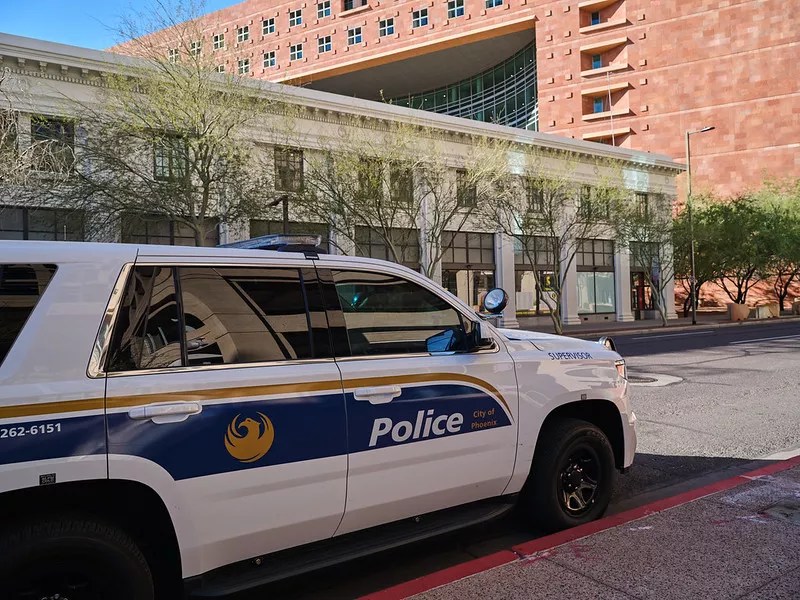
Tony Webster/Flickr

Audio By Carbonatix
During the course of 2021, COVID-19 has been the leading killer of law enforcement officers in Arizona. The deadly disease claimed as many local police officers’ lives as all other causes combined, such as gunfire and car crashes.
A total of seven individuals who were employed with both local and federal agencies in Arizona have died from COVID-19 in 2021 so far, according to Officer Down Memorial Page, a nonprofit that tracks law enforcement fatalities across the nation. (Its tally includes workers like detention officers and Border Patrol agents.) The second-highest cause of deaths were vehicle-related, such as vehicular assault and motorcycle crashes. The Drug Enforcement Agency agent who was fatally shot on an Amtrak train in Tucson earlier this month was the only person who died from gunfire.
COVID-19 was also the top killer of local police officers in 2020, though fewer people died altogether. COVID-19 killed four individuals, compared to two deaths due to gunfire and one stemming from a motorcycle crash.
These trends track with national statistics showing that COVID-19 is the primary cause of fatalities within law enforcement agencies. The Officer Down Memorial Page asserts that COVID-19 has been the “#1 killer” of law enforcement officers nationwide in both 2020 and 2021. The disease has also killed more law enforcement officers than the 9/11 terrorist attacks, according to the Washington Post, while CNN estimates that five times as many officers died from COVID-19 than from gunfire in 2020.
“It’s not surprising given the nature of the work that law enforcement does: close interaction with the community,” Joe Clure, executive director of the Arizona Police Association, said of the high number of COVID-19 deaths. “They are definitely at high risk.”
Despite the high number of COVID-19 fatalities, law enforcement agencies both in Arizona and across the country have reported lagging vaccination rates among their rank-and-file. In late August, Phoenix New Times reported that less than 40 percent of employees major regional agencies, like the Phoenix Police Department and the Maricopa County Sheriff’s Office, were vaccinated, while many departments weren’t tracking vaccination rates at all. Meanwhile, police unions in various cities have been actively resisting government-imposed vaccine mandates.
Will Humble, executive director of the Arizona Public Health Association, said that low vaccination rates among law enforcement are the reason why COVID-19 is the leading killer of police officers.
“That’s well established,” Humble said. “They fail to get vaccinated and they die of covid-19.”
He added that it is “incredibly puzzling” why officers are willing to accept the day-to-day risk of working in law enforcement but accept the risks of COVID-19 when they choose not to get vaccinated.
Asked if Arizona law enforcement is suffering from issues with officers’ reluctance to get vaccinated, Clure denied that the threat of COVID-19 is downplayed within the law enforcement community. He said that misinformation about the vaccine is contributing to officers’ reluctance to get vaccinated.
“There is an issue of reluctancy with a lot of Americans in general, and I think a lot of it deals with a lack of trust in government,” he said. “The vaccination issue, – which, it is clearly a big issue in law enforcement and other employment sectors – it boils down to the issue of choice. Some employees choose to take a vaccine, some do not.”